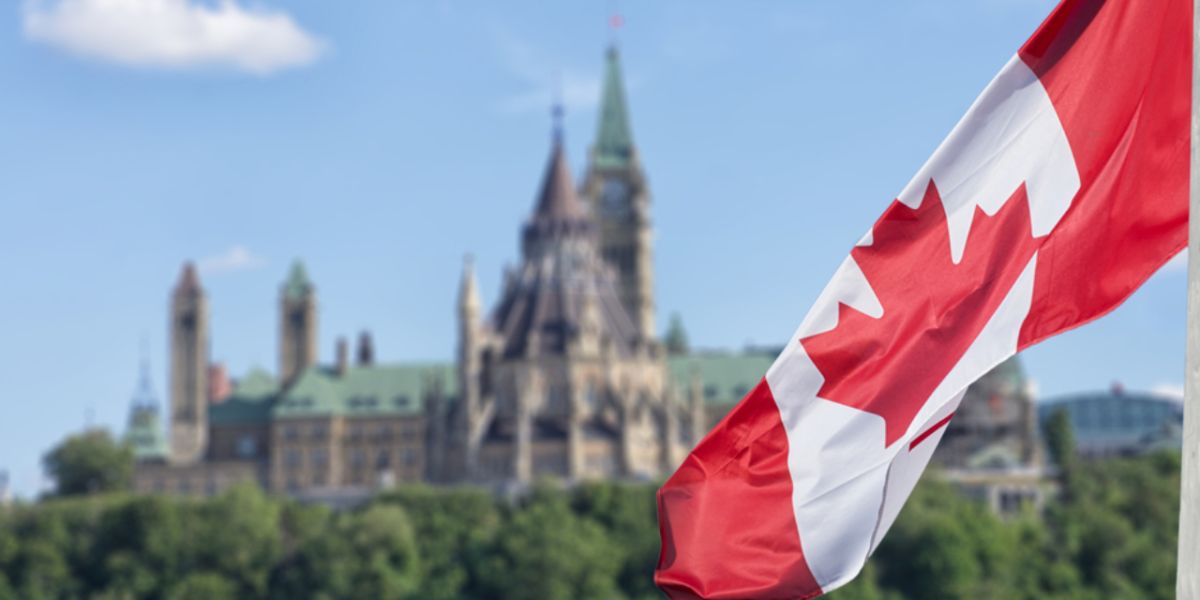
What makes France truly special and magical is certainly its fabulous cultural and tourist heritage. Its exceptional mosaic of landscapes between small traditional villages and large modern cities, its traditions, and its unique lifestyle will not fail to seduce you! Not to mention its 35 world heritage sites, the possibilities of natural and historical discoveries and the vast star-studded gastronomy that make France one of the leading destinations for tourists and expats from around the world. But did you know that it is possible for Canadians to work while enjoying a holiday in France?

Indeed, the Working Holiday Visa (WHV) program is the ideal opportunity to discover a new environment while living a new experience. France is one of the most popular destinations for the Working Holiday Visa (WHV). More and more Canadians are looking for a cultural and professional experience in France.
In this article, we will give you all the information you need to apply for a WHV in France and to make sure your stay goes smoothly!
Important:
All the information you will find in this text applies to Canadian citizens only.
How to be eligible for the Working Holiday Visa in France?
To be eligible for the Working Holiday Visa in France, you need to comply with the following requirements:
1. Your passport and nationality
You must be a Canadian national residing in Canada at the time of your application, have a Canadian passport that will remain valid for the duration of your stay in France. Please ensure that your passport contains sufficient blank pages (at least two) for your visa and stamps (on arrival and departure) to be affixed.
Good to know:
You are advised to be careful with your passport as soon as you receive your WHV. Losing it would mean having to start over to reissue it, and this could be quite challenging.
2. Your age
You must be aged between 18 and 35 to be eligible, but this also means that you can apply for a WHV until you are 36.
3. Having sufficient savings / a mandatory budget
It is essential that you have the financial resources to cater to your needs upon your arrival in France. The minimum amount set by Canada and France at this time is 2,500 Canadian dollars or approximately 1,885 euros. You will also need to prove to the relevant authorities that you have this amount of money in your account with a bank receipt.
4. Having a medical insurance policy
Having a health insurance policy is essential in everyday life - but even more so when you are out of your country! If you are only partially covered or cannot be covered at all by the social security system, you will need to provide proof of health insurance to cover your health, hospitalization, disability, maternity and repatriation expenses for the entirety of your stay in France.
5. The number of participations
It is important that you have not participated in the WHV program in France before, as only one participation is allowed per person. However, if you have been on a WHV in any other country, for example, Argentina, Australia, Japan or New Zealand, this will not be a problem.
6. The quota per country
When signing the WHV agreement, both countries decide on a quota of visas to be offered to control entry into the hosting country. The quota for Canada, which was initially 7,050, has been increased by 1,535 places in 2022 – bringing the total to 8,585 places. It's worth noting that quotas are updated annually.
7. The air tickets
You have to give proof that you have a return ticket. If you have a single ticket, you will need to prove that you can afford to buy a return ticket to Canada — from sources other than the mandatory budget mentioned above.
8. The validity period
The WHV program in France can last a maximum of 36 months. If your WHV was granted for a period of 12 or 24 months, you can extend it to 36 months, as long as the reason for your stay is related to the pursuit of studies.
Good to know:
Thanks to the Franco-Canadian agreement signed in March 2000, you are allowed access to mainland France, the French European departments, the French overseas departments (French Guiana, Reunion, Guadeloupe, Mayotte, Martinique) and the French overseas collectivity of St Pierre and Miquelon.
9. Not being accompanied
With the WHV visa, you will not be allowed to be accompanied by a dependent. The visa only applies to the applicant — if you wish to go with someone else, they will also need to be eligible and apply separately.
Good to know:
You are allowed to leave France as many times as you like, provided you return to France after each trip.
What are the procedures to follow to obtain the Working Holiday Visa in France?
Since the last Franco-Canadian agreement signed in 2015, Canadian citizens are exempt from the requirement to obtain a temporary work permit.
You must also provide the following documents:
- a duly completed and signed application for a long-stay visa
- a checklist for your application
- your Canadian passport, which must be valid for 6 months after the expiry date of your visa
- a photocopy of the first six pages of your passport
- proof of financial resources or proof of funds
- a one-year health insurance certificate covering you outside Canada
- complementary health and repatriation insurance
- a working holiday application form in the form of a covering letter
- three recent passport photos with a clear background, one of which must be attached to your application.
You must submit your application to the Consulate General of France in your area (either the Consulate General of Toronto, the Consulate General of Montreal or the Consulate General of Vancouver).
Processing times for the WHV vary depending on the consulate where you apply.
Once you have your French WHV, you must obtain a national insurance number (equivalent to the SIN in Canada), unless your future employer has already provided you with one.
Important:
It is recommended that you keep copies of all documents submitted in a separate file.
Good to know:
If you are from Quebec, you must inform the Régie de l'assurance maladie Québec (RAMQ) of your temporary stay outside Quebec. The RAMQ will provide you with a specific document when you receive your WHV.
Things to consider before moving to France on a WHV
1. The cost of living in France
Before going on a WHV in France, it is recommended that you find out a lot about the cost of living. This will allow you to assess how you will manage your budget in France.
Here is a table that will give you an idea of the cost of living in France - (source Numbeo; as of July 2022):
Currency : Canadian dollars(CAD) | |
Rent | |
1-bedroom flat (in the city center) | 1 013,51 |
1-bedroom flat (outside the city center) | 800,52 |
3-bedroom flat (city center) | 2 132,29 |
3-bedroom flat (outside the city center) | 1 501,28 |
Utilities | |
Water, electricity, air conditioning, heating, waste collection for an 85m² apartment | 203,01 |
Internet (60 Mbps or more, ADSL/cable, unlimited data) | 38,83 |
Transportation | |
1 ticket (one way) for local transport | 2,16 |
Monthly pass for local transport | 86,44 |
Shopping/groceries | |
Rice (1 kg) | 2,51 |
Milk (1 L) | 1,35 |
12 eggs (normal size) | 4,10 |
Bread (500 g) | 2,02 |
Chicken (1 kg) | 13,61 |
Red meat (1 kg) | 23,81 |
Oranges (1 kg) | 3,29 |
Bananas (1 kg) | 2,55 |
Apples (1 kg) | 3,47 |
Potatoes (1 kg) | 2,33 |
Onions (1 kg) | 2,65 |
Water (1.5 L) | 0,94 |
Wine (mid-range bottle) | 9,31 |
Local beer (0.5 L) | 2,73 |
Imported beer (0.33 L) | 3,16 |
Cigarettes (pack of 20) | 13,30 |
Leisure | |
Movie theatre - 1 seat | 13,30 |
Sports club - monthly cost for 1 person | 44,29 |
2. Looking for accommodation in France
Finding accommodation in France is an essential step in your preparations for the WHV. There is nothing more stressful than arriving in an unknown country without any idea of where you will sleep that night. It is therefore recommended that you take the initiative and find accommodation, even if it is temporary, before you arrive in France. For those on a budget, consider youth hostels, Wwoofing and couch surfing! You'll have no trouble finding different housing options all over France, no matter which region you want to visit. Airbnb is a great platform for finding accommodation of various sizes and budgets; check it out!
Otherwise, we recommend the following platforms: Bien Ici, Logic Immo, Fnaim, Paru Vendu, Super Immo, PaP, Se loger and Immobilier France.
3. Looking for a job in France
We can guess that your main goal may not be to find a job in France as there are so many beautiful places to discover. But a WHV job in France will be a great addition to your CV!
Here are some recommended job search platforms: Indeed France, Pôle Emploi, Jooble France, Neuvoo France, Monster, France-emploi, or Adecco. Don't hesitate to add your field of expertise during the search to refine the results.
For bilinguals, consider giving language lessons on the spot — this could be a way to earn money while meeting new people and immersing yourself in the local culture!
4. Learning French
Not all French people speak English (or speak it well), so communication may be difficult if the WHV participant does not understand French well. For Canadians who don't speak French, it is strongly recommended that they learn the language and grasp some basic phrases before arriving in France.
There are several apps that will help you do this in a fun way, like Rosetta Stone, Duolingo, Babbel, Mondly, Busuu, or HelloTalk. Take advantage of your stay in France to find a local teacher to help you master the language and better understand the culture of the country!
Staying in France after the Working Holiday Visa
The young worker program
After the expiry of your WHV, you have the possibility to stay in the country for a limited period of time, thanks to the Young Workers Programme (3A visa). This work permit, granted for a given employer, allows young Canadian workers to work and/or study in their field of activity while deepening their knowledge and experience of French culture and the country itself.
The conditions to be respected to obtain this particular work permit are practically the same as those required for the WHV France:
- be a Canadian citizen residing in Canada when the application is submitted
- be between 18 and 35 years old
- have a Canadian passport valid for at least 3 months after the expiry date of the WHV
The WHV is valid for a period of 4 to 12 months and can be extended for two periods of 12 months, provided that the extension is related to an internship or studies.
To obtain this extension, you will need to provide proof of a diploma or work experience issued less than 12 months before the date of your application and, if necessary, a certificate of recognition of your professional qualifications.
University exchanges
The visa for university exchanges allows young Canadian students to benefit from an exchange program between French and Canadian universities. This visa is valid for 4 to 12 months and can be renewed twice.
Practical training
This visa, valid for a specific employer, allows young Canadians to obtain an internship in France in their field of activity. This visa can also last from 4 to 12 months and can be renewed twice.
Useful addresses:
Consulate General of France in Toronto
2 Bloor Street East, suite 2200 (22nd floor)
Toronto, ON, M4W 1A8
Canada
Consulate General of France in Montreal
1501 MacGill College Street, Suite 1000
Montreal, Quebec, H3A 3M8
Canada
Consulate General of France in Vancouver
Suite 1100 (11th floor) - 1130 West Pender street
Vancouver, BC-V6E 4A4
Canada
Useful links:
Consulate General of France in Toronto
Consulate General of France in Montreal
We do our best to provide accurate and up to date information. However, if you have noticed any inaccuracies in this article, please let us know in the comments section below.








